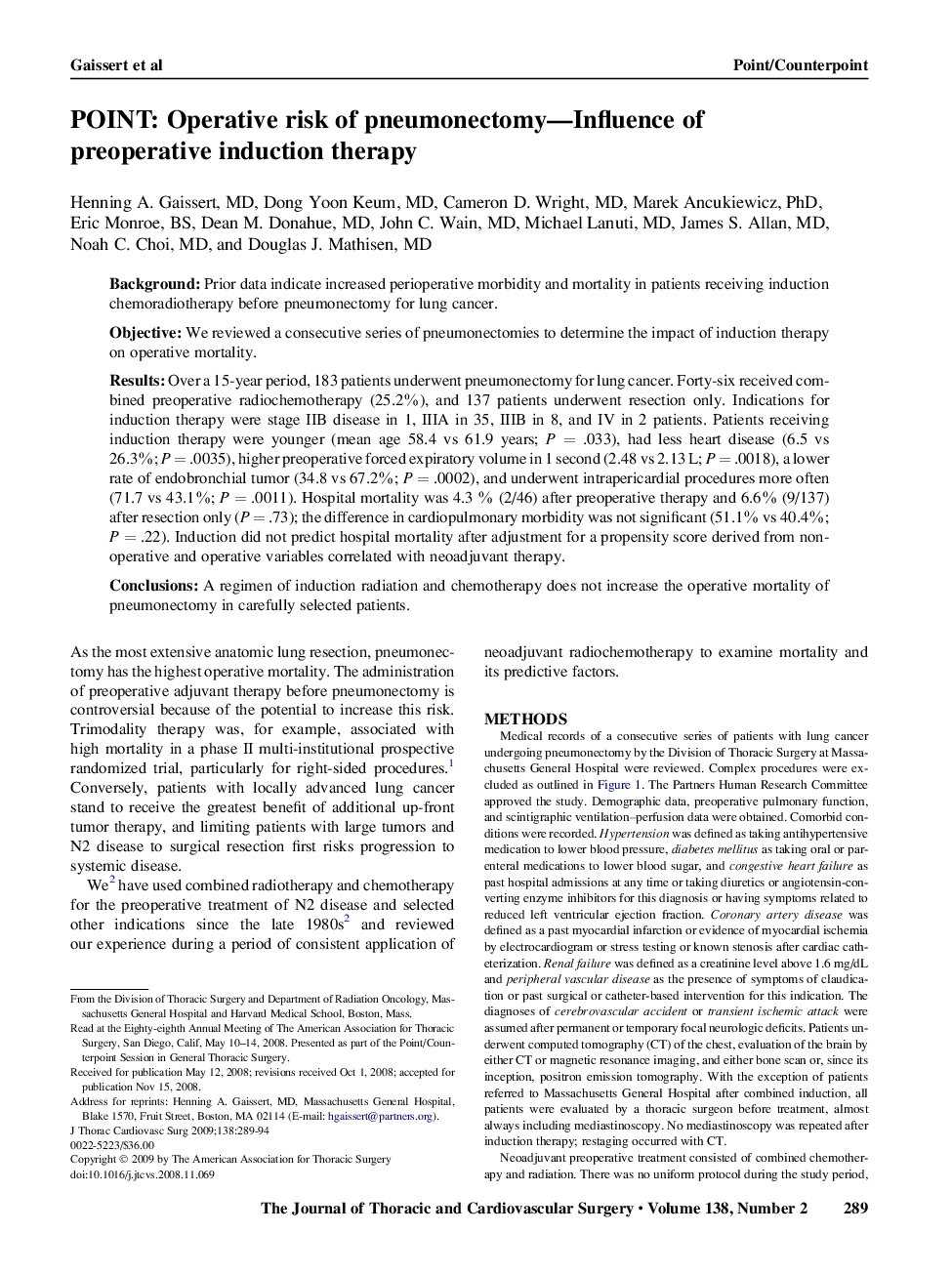| Article ID | Journal | Published Year | Pages | File Type |
|---|---|---|---|---|
| 2984169 | The Journal of Thoracic and Cardiovascular Surgery | 2009 | 6 Pages |
BackgroundPrior data indicate increased perioperative morbidity and mortality in patients receiving induction chemoradiotherapy before pneumonectomy for lung cancer.ObjectiveWe reviewed a consecutive series of pneumonectomies to determine the impact of induction therapy on operative mortality.ResultsOver a 15-year period, 183 patients underwent pneumonectomy for lung cancer. Forty-six received combined preoperative radiochemotherapy (25.2%), and 137 patients underwent resection only. Indications for induction therapy were stage IIB disease in 1, IIIA in 35, IIIB in 8, and IV in 2 patients. Patients receiving induction therapy were younger (mean age 58.4 vs 61.9 years; P = .033), had less heart disease (6.5 vs 26.3%; P = .0035), higher preoperative forced expiratory volume in 1 second (2.48 vs 2.13 L; P = .0018), a lower rate of endobronchial tumor (34.8 vs 67.2%; P = .0002), and underwent intrapericardial procedures more often (71.7 vs 43.1%; P = .0011). Hospital mortality was 4.3 % (2/46) after preoperative therapy and 6.6% (9/137) after resection only (P = .73); the difference in cardiopulmonary morbidity was not significant (51.1% vs 40.4%; P = .22). Induction did not predict hospital mortality after adjustment for a propensity score derived from nonoperative and operative variables correlated with neoadjuvant therapy.ConclusionsA regimen of induction radiation and chemotherapy does not increase the operative mortality of pneumonectomy in carefully selected patients.
